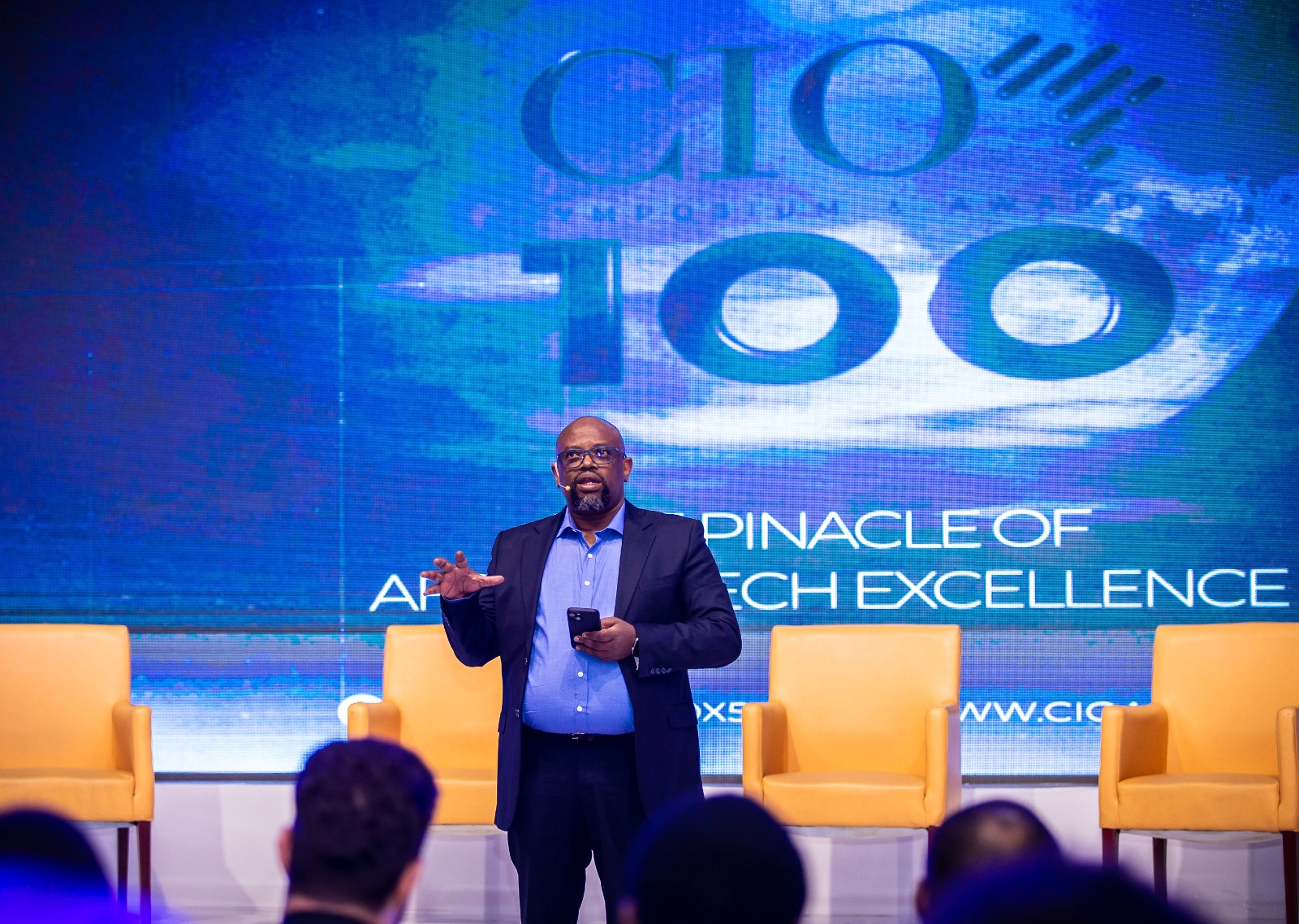

Africa’s digital transformation is entering a new phase
defined by focus, strategy, and measurable impact, according to the CIO100
Megatrends 2025 Report by CIO Africa under dx⁵.
The report shows that African organisations are moving beyond experimenting with technology to executing structured digital strategies that drive growth.
Drawing insights from organisations across Sub-Saharan Africa, the report shows that cloud computing leads adoption at 61.2% followed by AI at 54.8%, analytics at 43.8%, and cybersecurity at 43.6%.
Machine learning, the Internet of Things (IoT), and edge computing are also emerging as key tools for growth, particularly in finance, government, education, and manufacturing sectors that are driving growth through innovation and smart use of technology.
Across Sub-Saharan Africa, cloud computing leads adoption at 61%, followed by AI at 55%, and both analytics and cybersecurity at 44%. Machine learning, the Internet of Things (IoT), and edge computing are also gaining ground, particularly in key sectors such as finance, government, education, and manufacturing.
“African business leaders are no longer asking what’s new —
they’re asking what works,” said Harry Hare, Chairman of CIO Africa.
“The data confirms
that Africa’s digital leaders have moved beyond adoption debates and into
disciplined execution. It’s no longer about technology for technology’s sake,
but about solutions that deliver measurable value.”
Cloud computing, once considered a milestone on the road to
transformation, has now become a backbone of business operations.
Companies are increasingly moving toward multi-cloud
environments that balance costs while ensuring scalability, speed, and
performance.
Artificial intelligence and machine learning, meanwhile, are
now essential business tools.
From automating processes to enhancing customer experiences
and enabling data-driven decision-making, AI is redefining how African organisations
compete and grow.
Cybersecurity has also evolved from a compliance necessity
into a strategic differentiator.
Nearly half of all surveyed organisations have implemented
advanced frameworks to protect data integrity and ensure continuity, reflecting
a growing awareness that trust and resilience are central to business success.
Although IoT and edge computing adoption remains modest,
their influence is expanding in industries such as agriculture, logistics, and
healthcare.
By bringing intelligence closer to where data is generated,
these technologies are helping overcome connectivity challenges and enabling
smarter, faster decision-making — even in remote areas.
The CIO100 Megatrends 2025 Report identifies efficiency,
customer experience, cost control, and employee productivity as the leading
priorities for African businesses.
Over 85% of
executives cited operational efficiency as their top goal, indicating a clear
shift from technology adoption to performance-driven execution.
Despite the progress, challenges persist, particularly
talent shortages, cyber threats, and regulatory complexity.
The report calls for deeper collaboration between
policymakers, educators, and private sector players to sustain innovation and
build a strong digital ecosystem.
“Technology is only as strong as the people who use it,”
Hare noted.
“Africa’s digital leaders are creating solutions that fit our
realities, from internet costs to local data needs, and that’s what makes our
innovation truly African.”
The findings will be discussed in detail at the CIO100
Symposium & Awards 2025, set for November 19–21, 2025, at Enashipai Resort
& Spa in Naivasha, where Africa’s top 100 technology leaders will be
recognised for excellence in digital innovation and leadership.













